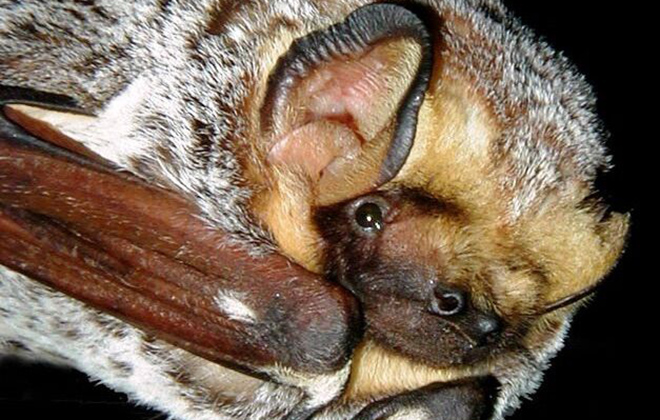Wind turbines killing more hoary bats than expected

SunEdison Inc.
WAILUKU >> A wind turbine company wants to increase limits on the number of Hawaiian hoary bats and nene allowed to die accidentally in its machines.
SunEdison, which owns the Kaheawa Wind Projects I and II, has found that the number of bats killed during its operations so far is significantly higher than predicated in 2006, reported The Maui News.
At the time, experts expected no more than one bat death per year. But in the three years since 14-turbine KWP II went online, three hoary bat fatalities were recorded and conservations estimate the actual number of bats killed at the project could be as high as 18.
SunEdison is asking the Endangered Species Recovery Committee for permission to increase the number of bats that can die during the 20-year lifespan of KWP II from 14 to 80. In exchange, the renewable energy developer would invest about $3.45 million in efforts to help protect the bats and other endangered species that could be hurt by their project.
Company spokeswoman Crystal Kua said in an email that very little was known about the Hawaiian hoary bat when the company made the 2006 projections.
"No Hawaiian hoary bats were recorded in the area of the proposed wind turbines during studies conducted in the summer of 1999 or fall 2004," wrote Kua.
Don't miss out on what's happening!
Stay in touch with breaking news, as it happens, conveniently in your email inbox. It's FREE!
She said experts now know the species can be in the area any time of year, either foraging or just passing through, although it is probably infrequent.
The company also wants to increase the number of nene that can die at KWP II over the next 17 years. They want to raise the current limit from 30 to 48.
SunEdison met with the committee on Oahu Tuesday to get feedback the proposed amendments to its Habitat Conservation Plan.
The Department of Land and Natural Resource’s Division of Forestry and Wildlife hasn’t taken a position on the matter, according to acting administrator Scott Fretz. But he said amending conservation plans is "not uncommon."



